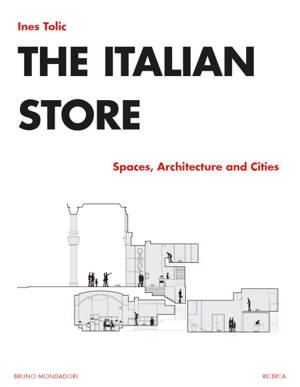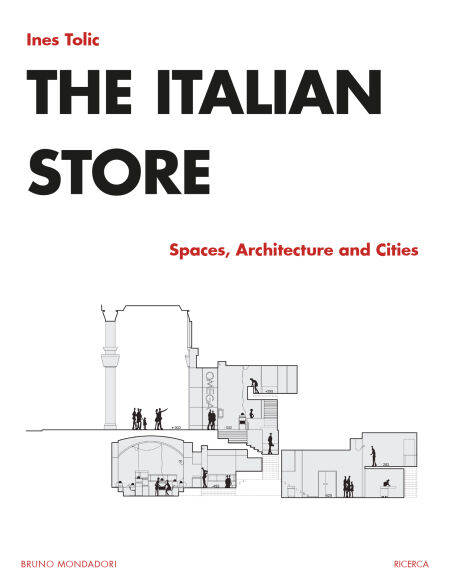
- Afhalen na 1 uur in een winkel met voorraad
- Gratis thuislevering in België vanaf € 30
- Ruim aanbod met 7 miljoen producten
- Afhalen na 1 uur in een winkel met voorraad
- Gratis thuislevering in België vanaf € 30
- Ruim aanbod met 7 miljoen producten
Zoeken
€ 11,20
+ 11 punten
Omschrijving
For the Third Biennale of Monza in 1927, Guido Marangoni had an area of botteghe d'arte, or art shops, set up with the primary task of "serving as an example and incentive for greater attention to the store and the shop window". Aside from a few exceptions the results were not particularly pleasing to the promoter of the initiative, yet it was precisely this first public discussion of the topic of shops that sparked a reflection on the aesthetics of points of sale in Italy. A reflection that soon began to bear results worthy of note since trade magazines started focusing their attention on architecture for commerce and its furnishings in the late 1920s, considering them examples of modernity and the latest aesthetic trends. Since then discussions of shop design have been further enriched with exemplary cases, protagonists and issues, generating a field of study that as of today has not yet been sufficiently explored.
Revealing the obscure and unknown aspects of this subject matter, reviewing the contribution of some of the sector's protagonists, elaborating a critical reflection on the design of space in relation to the goods and ana-lysing the iconography that has accompanied the development of this area until today are just some of the objectives of the book The Italian Store, which fills a bibliographic void necessary to understand the cultural role of the store, interpreted as a meeting place for producers and consumers, the private and the public, the home and the city.
Ines Tolic is Professor of History of Architecture and Design at the University of Bologna. After completing a degree in Architecture at Iuav University, she earned a doctorate of excellence in the History of Architecture and the City from the School of Advanced Studies in Venice. She has studied the relationship between archi-tecture and the Cold War, modernisation processes in developing countries and new technologies for historical research. Her research deals mainly with 20th-century architecture, in particular the methods of representing buildings and the relationship of architecture with the urban context.
Revealing the obscure and unknown aspects of this subject matter, reviewing the contribution of some of the sector's protagonists, elaborating a critical reflection on the design of space in relation to the goods and ana-lysing the iconography that has accompanied the development of this area until today are just some of the objectives of the book The Italian Store, which fills a bibliographic void necessary to understand the cultural role of the store, interpreted as a meeting place for producers and consumers, the private and the public, the home and the city.
Ines Tolic is Professor of History of Architecture and Design at the University of Bologna. After completing a degree in Architecture at Iuav University, she earned a doctorate of excellence in the History of Architecture and the City from the School of Advanced Studies in Venice. She has studied the relationship between archi-tecture and the Cold War, modernisation processes in developing countries and new technologies for historical research. Her research deals mainly with 20th-century architecture, in particular the methods of representing buildings and the relationship of architecture with the urban context.
Specificaties
Betrokkenen
- Auteur(s):
- Uitgeverij:
Inhoud
- Aantal bladzijden:
- 100
- Taal:
- Engels
Eigenschappen
- Productcode (EAN):
- 9788867743681
- Verschijningsdatum:
- 22/03/2021
- Uitvoering:
- E-book
- Beveiligd met:
- Digital watermarking
- Formaat:

Alleen bij Standaard Boekhandel
+ 11 punten op je klantenkaart van Standaard Boekhandel
Beoordelingen
We publiceren alleen reviews die voldoen aan de voorwaarden voor reviews. Bekijk onze voorwaarden voor reviews.








